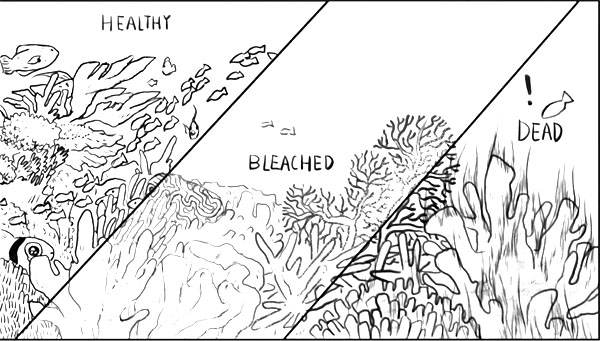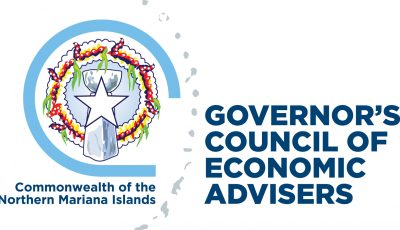Is climate change real?
DCRM area of particular concern: Lagoon and reefs
With the increasing temperature of our planet, the climate stress on our reefs have caused devastatingly widespread coral bleaching, endangering our islands and lifestyle. With the most severe bleaching incidents in 2014, 2016, with 2017 having had the worst effects to our local reefs, more corals are subject to the effects of climate change in the near future.
Coral bleaching occurs when healthy coral becomes stressed due to continuous exposure to warm temperatures. Although it is possible to reverse its bleaching, recovery can only be done with about 10 years of undisturbed and stable climate waters. The Marine Monitoring Team at the Division of Coastal Resources Management (DCRM) has confirmed that not only do we have a local coral bleaching problem, but also threats to our lagoon as well. Blue-green algae (cyanobacteria) blooms contain toxic chemicals that can harm wildlife and humans when ingested or by direct contact. While they can occur naturally, nutrient-rich waters from industrial inland run-off is one of the main factors to their persistent growth. Unfortunately, blue-green algae is not the normal diet of most fish and because of this, they often overgrow and further stress the aquatic life.
As climate change continues to affect our planet and islands, it becomes increasingly crucial for drastic measures to be made. Actions to combat this can be through several strategies, such as reducing one’s carbon footprint, switching off and unplugging unused appliances and electronics, turning off your water, disposing of chemicals responsibly to lessen their run-off towards the ocean, and planting more greenery wherever possible, be it a community project or as home plants. Having a healthy ecosystem for our marine wildlife is necessary in order to assure a stable economy. Local fisheries and environmental tourism heavily rely on local sea life for revenue. Being careful with how we interact in the environment has become that much more critical, no matter how small it may be, every act matters. Protecting our lagoons and reefs means ensuring a stable and healthy community.
Cerijean F. Mangubat (Special to the Saipan Tribune)
Cerijean F. Mangubat is a student at the Northern Marianas College and currently serves as a summer intern with the Division of Coastal Resources Management. This article is the first of a short series that discusses the significance of DCRM’s areas of particular concern and why these resources are subject to special management standards.



























